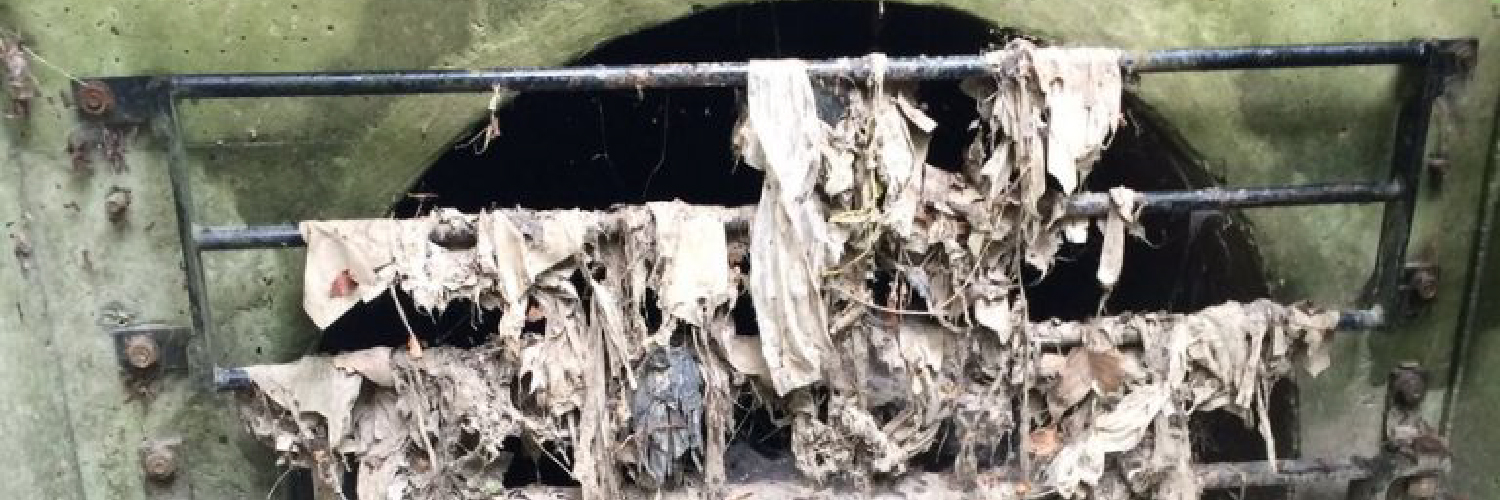Flush Me Not
Did you know that single-use “flushable” wipes are a source of serious expense for managers of municipal water works and taxpayers, because they clog pumps, screens, filters and pumps?
More about “flushable” wipes:
-
- “Flushable” wipes add at least $250 million dollars in additional repairs and maintenance each year to municipal sewer systems in Canada;
- “Flushable” wipes lead to putrid sewage clogs and can form the core of fatbergs, large masses of solid waste consisting of congealed fat and personal care products that block pipes and cause flooding;
- Single-use “flushable” wipes can end up in sewage waste converted to biosolids thereby contributing plastic and synthetic fibers to agricultural lands

The single-use wipes, which include baby wipes and personal wipes, sold under the Cottonelle, Charmin and President’s Choice brands and others, are marketed as “flushable” and safe to be flushed down toilets. But a recent study by Ryerson University’s Urban Water program on behalf of the Municipal Enforcement Sewer Use Group demonstrated that all the products cited in the application failed to meet internationally recognized criteria for flushability. The study examined more than 101 products, and all items except toilet paper failed to pass tests for drain line clearance and disintegration. Many of the products are also composed of plastic or regenerated cellulose.


